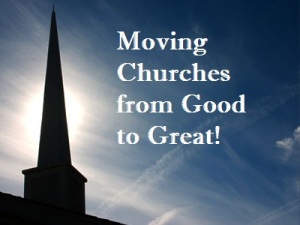Back in the 1970s and 1980s churches attempting to market themselves to persons turned off or bored by the traditional church emptied their sanctuaries of overtly Christian symbols. Most notably, many took down the Cross. There were a variety of reasons - a symbol of violence, the sign of the conquering armies of Christendom, or just too specific for people who were not prepared to deal with the exclusive claims of the church about the salvation. Get them in the door by being nonthreatening--then tell them about Jesus.
That always seemed a whole lot like "bait and switch" to me. But more problematically, it gave tacit permission to separate contemporary Christianity from its ancient moorings and in some way stopped being much more than a diluted form of "the faith once delivered unto the saints."
Likewise, some emerging churches and contemporary churches have tried to downplay the biblical doctrines that form the truth that is represented in Jesus Christ. Kevin Harney in his excellent book
Organic Outreach for Ordinary People--Sharing Good News Naturally makes this observation:
"People in some Christian circles today seem to think we can't confidently know truth. They think doctrine is old-fashioned and confining. They are more comfortable reimagining or repainting the Christian faith. Rather than looking to God's Word and discovering eternal truth that can shape and guide our lives, they seem more interested in dissecting, debunking, and questioning the doctrines that have been embraced by Christians for the past two millenia. Core teaching and doctrines of the Christian faith are being treated like garnish on the side of a plate in a fancy restaurant. Some are suggesting that we toss these beliefs out like a sprig of parsley. They serve a decorative purpose but are not essential to our faith.
"What these 'innovative' and 'revolutionary' thinkers fail to recognize is that they are tossing out fundamental beliefs that define the Christian faith. Without these truths intact we are no longer the church of Jesus Christ. We become a social club of do-gooders who longer embrace or share the core truths of the Christian faith. But what we believe really does matter! The core, unifying beliefs of the Christian faith have always been founded on the inspired written Word of God-the Bible.
"Our beliefs matter to God because he is the one who breathed the very words of scripture (2 Tim.3:16). Our doctrine matters because what we believe determines how we live, love, and reach out to the world. The core beliefs of Christians are also of intense interest to those who are not yet believers in Jesus Christ. They arewatching us and wondering if we really believe what we say we believe."










